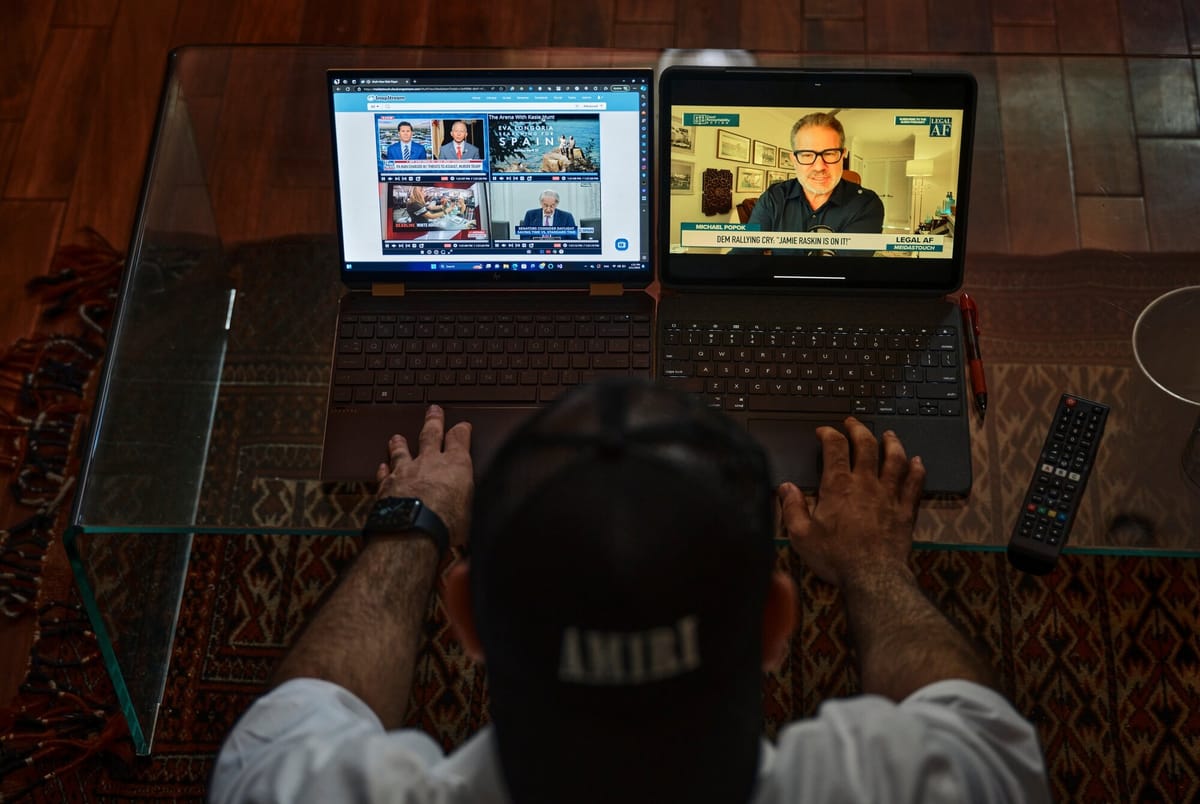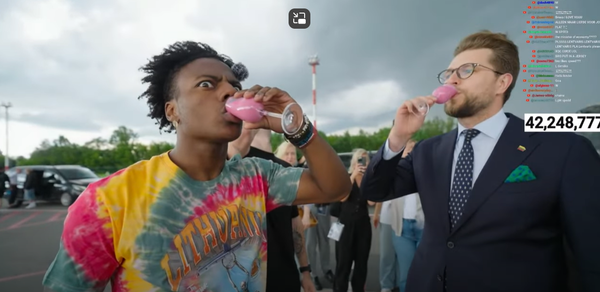Mayhem clippers
They turn the news into "raw stimuli" that dominates the web. And basically no one knows anything about them.

Full story: The 40-something single dad shaping liberal media from his laptop
I've been fascinated for years by Acyn Torabi and Aaron Rupar, two no-name guys whose viral videos on social media basically dominate the news.
Their clips are churned out at hyper-speed and serve as a first video draft of history, promoted by political operators, embedded into news reports, and seen hundreds of millions of times a month. And like most successful political-media creations of the internet era, they're pretty good at pissing people off.
So who are these guys? Why should we trust them? And should we have the same kind of anxieties about their work as we did around the soundbites of the early cable-news era – or is this just how we process the daily mayhem of our democracy now?
Torabi’s rise offers a glimpse of a new generation of online journalism, on which frenetic, fast-cut video posts fuel the country’s political debates. Stephen Coleman, a professor of political communication at the University of Leeds, said the videos function less like traditional news and more like entertainment or sports, because they give people something to socialize over in a short, visually compelling way.
“It’s information you come across inadvertently, raw stimuli you see alongside celebrities and recipes,” he said. “People want drama … the big moments, the things they can talk about the next day.”
The videos have multiplied amid social media’s rapid colonization of the press, with 1 in 5 Americans — including one-third of those under 30 — telling the Pew Research Center last year that they get their news from influencers who specialize in current events.
The risk from these videos, Coleman said, is that they’re never as impartial as they might seem. But they offer a benefit, too, in helping get people engaged in the squabbles and mechanics of civic life.
“I wouldn’t want to be too sniffy about it,” he said. “It’s not a choice between this and going to the library. It’s a choice between this and nothing.”
Thanks for reading. Let's talk: [email protected].




